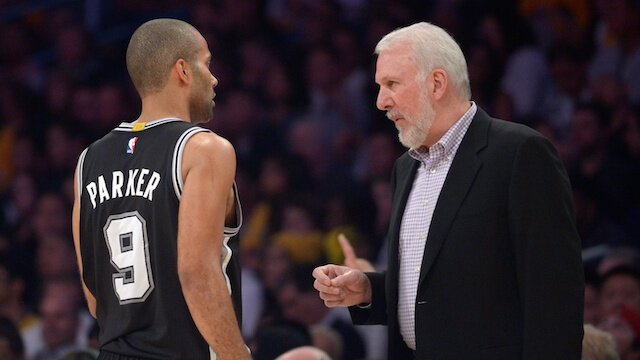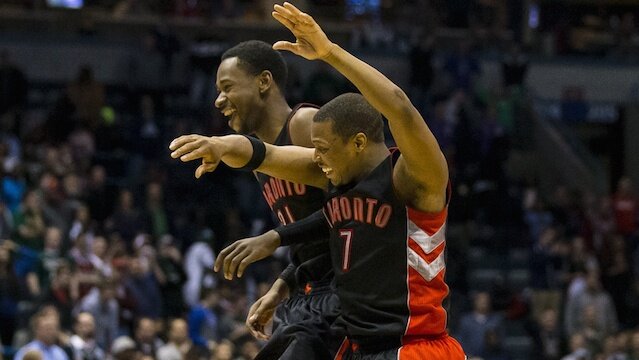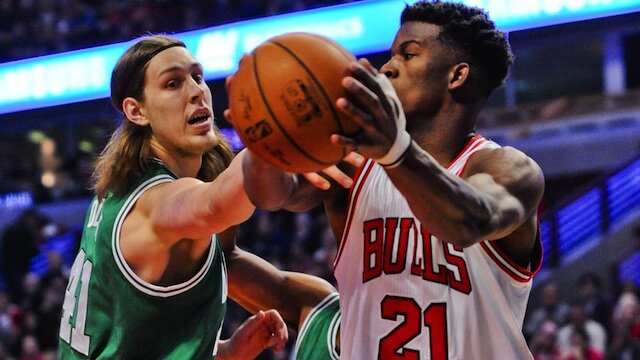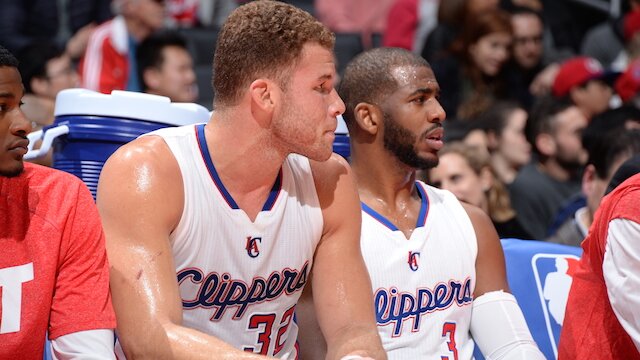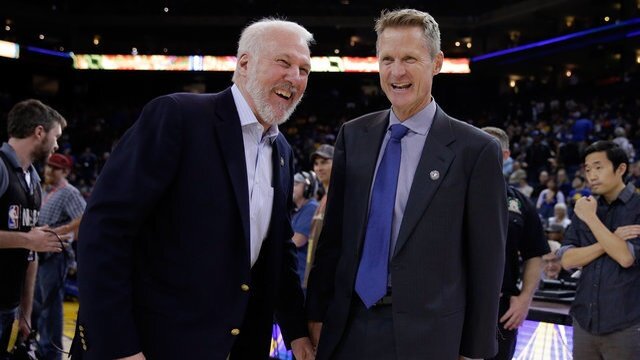Breaking Down The Aspects Of A Great NBA Coach
Imagine for a minute that there were only 30 police officers in the entire United States. Don’t focus on the impending chaos that would likely ensue as a result, but instead think about how insanely talented those 30 individuals would have to be to meet the demands of the job. They would be hand-selected by the highest body of governing officials, put through rigorous testing to ensure physical and emotional health, and constantly monitored during the course of their tenure for competency. It would be one of the most difficult jobs to secure in the world.
Now, extend this metaphor to the head coaching position in the NBA. I know that it doesn’t exactly hold up, but what I want you to understand is that any job with such a few number of people holding a particular position inherently demands the highest levels of proficiency. So why is it then that such a few number of head coaches are actually successful?
Of the current 30 people holding a head coaching position in the NBA, only four of those have actually won a championship. If you consider a title to be the ultimate sign of success in that position, this marks a success rate of only 13%. It seems to me that this exceptionally low rate is indicative of the implicit difficulty in becoming a successful coach in the NBA.
So what is it about certain people then that makes them a successful coach, and subsequently, what is it about other people that leads to such a high level of failure? I am going to break down for you each element of coaching, putting a certain level of emphasis on each aspect, and will then extend these qualities to the NBA coaches who best represent them.
Tacticians
First, and probably most importantly, is a deep understanding of the game, and the ability to creatively put your team in positions to win. This is usually referred to as the “x’s and o’s” of the game.
Some coaches are great tacticians, and have a unique ability to craft offensive and defensive schemes for their respective teams, and consistently put lineups on the floor that give their team the best chance to win. Rick Carlisle may be the best example of a brilliant and tactically inclined coach. His “genius” in this respect has been put on display throughout his career, and played a big part in the Dallas Mavericks winning their only championship in 2011.
Carlisle’s part in the success of his team is simple. He has established a handful of very mechanical sets that are intended to kick off the offense for his team. He then allows his players to make decisions within these sets to cut and move the ball as they best see fit. For the most part, it works beautifully, but when it doesn’t, he adjusts his lineup and puts players on the floor that he feels are more capable of succeeding based on matchups. Put simply, he sets the guidelines for his players to act within, allows them autonomy to make decisions, and steps in only when it doesn’t appear to be working.
Motivators
Other coaches aren’t as good with the minute-by-minute, in-game adjustments. Instead, they excel at motivating their players to put out optimal effort on a consistent basis, even at times overcoming significant obstacles in the process.
Tom Thibodeau may be the most apt example of a coach who has gotten the most out of his roster, despite having to deal with major injuries to core pieces of his roster over the years. It always seems like the Chicago Bulls, recent few weeks aside, are willing to run through a wall for Thibodeau. They truly seem to be motivated by playing for their coach.
Thibs is certainly a decent tactician, especially on the defensive side of the ball, but the extent to which he gets his players to give maximal effort on a nightly basis, is unrivaled across the league.
Psychology
It is no secret that NBA players, and athletes in general, tend to have massive egos. This isn’t true across the board of course, but anytime there is such an elite group, it tends to breed arrogance, and that arrogance can be exceptionally difficult to manage.
With only 15 players on a team, and only 12 active on a roster at any given time, there will inevitably be contention over minute distribution, play calling, etc., especially when combined with egos that tend to be overinflated.
This requires a master psychologist to deal with at times. No other coach has done a better job in this aspect than Phil Jackson, who has successfully managed some of the most unique personalities in NBA history in Michael Jordan, Kobe Bryant and Shaquille O’Neal, and has done so with unparalleled success.
Public Persona
Interaction with the media is a reviled, yet necessary element of the head coaching position in the NBA. When your team wins, you are expected to put on a modest face in front of the media, communicating in a manner that doesn’t reveal an excessive amount of exuberance. When your team loses, you are expected to put on your teflon, and absorb the bullets fired at you by the talking heads without any sign of wavering. It is a no-win proposition, frankly.
Yet, you are undoubtedly viewed as the face of the franchise, and because of that, it is definitely a critical, and underappreciated, aspect of coaching.
No current coach is as beloved by the media as Steve Kerr, of the Golden State Warriors. Maybe it’s because one short year ago, he was a member of the media, as an analyst for TNT, but he has certainly done nothing to damage his sparkling reputation this year. Between his Colgate smile, his endearing personality, and his ability to reveal just enough to satisfy the media’s appetite for quotes, Kerr has proven himself more than capable of handling this aspect of the job.
The Blend
All of the coaches mentioned previously have a healthy blend of every element I called out. That is what has made them so successful, and why they are so beloved within the NBA. But no coach has a better blend of every aspect than Gregg Popovich, who will undoubtedly go down as one of the greatest coaches of all time.
He is a master tactician, evidenced by the fact that so many coaches are beginning to emulate his system, and his player management. His players love and respect him, and are motivated to play for him year after year. This is the reason that their “Big 3” has remained intact for so many years, and are even willing to take pay cuts to remain a part of the San Antonio Spurs. He has been blessed to coach some of the least egotistical players ever, but part of that should be attributed to his ability to manage expectations and master the art of psychology. And, although he is extremely gruff with the media, he has done so in a way that comes across as idiosyncratic, rather than egotistical.
On the other hand, if even one of these elements is out of whack, it can be a coach’s downfall. Take Monty Williams, of the New Orleans Pelicans, for example. He is a great motivator, and his team absolutely loves him as a coach and a person. Anthony Davis and Ryan Anderson have gone on record stating as much. But, his in-game decisions are constantly being questioned, and as a result, his coaching status is continuously under scrutiny.
Alternatively, David Blatt has been touted as a genius when it comes to the x’s and o’s of basketball, but he has been under fire since he took the Cleveland Cavaliers job for his inability to connect to players, and motivate his team.
Again, if there isn’t a healthy harmony between these elements, it can make all the other strong attributes irrelevant.
Conclusion
It obviously isn’t easy coaching in the NBA. It requires a healthy mixture of many unique and rare qualities. There is a reason that so few coaches are actually successful. But, just like I asked you to envision at the start, there are only 30 people holding a NBA head coaching job at any given moment, and the expectations should be sky-high that they possess what it takes to get the job done.
You wouldn’t accept it if half of the 30 police officers in the world were incompetent would you? Being part of such an elite group comes along with a level of nearly unachievable expectations. Former players have tried and failed. People with lifelong basketball pedigrees have also fallen flat on their face. But, then there’s also people like Erik Spoelstra who started as a video coordinator for the Miami Heat that managed to work their way up to becoming one of the most successful coaches in the NBA.
The formula is hard to figure out, and rarely makes sense, But, as is the case in most walks of life, sometimes a person just has what it takes. And that is something that can’t be taught.
Court Zierk is a Columnist for www.RantSports.com. Follow him on Twitter @CourtZierk, “Like” him on Facebook or add him on Google.
Revamped Raptors No Threat From Three
Defense isn't the only problem plaguing the Toronto Raptors, and despite their recent wins, an alarming trend of miserable three-point shooting could soon stop the team in their tracks. Read More
Kyrie Irving Key To Cavaliers' Recent Success
The Cleveland Cavaliers just extended their winning streak to seven games, and the pinnacle of this newly found success is not LeBron James. Read More
Jeremy Lin Should Run Lakers' First Team Again
Jeremy Lin thrived when the ball was in his hands. Kobe Bryant is lost for the season, and the time is right to turn the team over to Lin and see what he can do. Read More
Kemba Walker Injury Could Lead To Norris Cole Deal
Could Kemba Walker’s injury turn into the Miami Heat finally securing Dwyane Wade’s backup? Read More
Miami Heat Midseason Grades and Analysis
Here are the 2014-15 Miami Heat midseason grades. Read More
Byron Scott Needs To Improve Communication
An already frustrating season has taken a turn for the worst as Byron Scott randomizes his rotations. Doing so without warning his players comprises their already shaky rapport. Read More
2014-15 Raptors Midseason Grades and Analysis
Toronto Raptors have been great this season despite recent hiccups. Here's how they grade out at the season's midway point. Read More
Warriors Midseason Grades and Analysis
The Warriors are a hard team to beat. They are definitely at the top of their game and the top of the class. Read More
Celtics Should Trade Picks, Sign Veterans
The Boston Celtics are playing with a ton of heart and are actually winning some games. This proves a challenge to Danny Ainge's mission to tank. Read More
NBA Power Rankings For Week 13
Week 13 edition of RantSports' NBA Power Rankings. Read More
NBA Midseason Report: Top 10 Most Surprising Teams
It has been an interesting and unpredictable first half to the NBA season. Here are the 10 most surprising teams thus far. Read More
Top 10 Midseason NBA Coach of the Year Candidates
Ranking the NBA coach of the year candidates at the midway point of the season. Read More
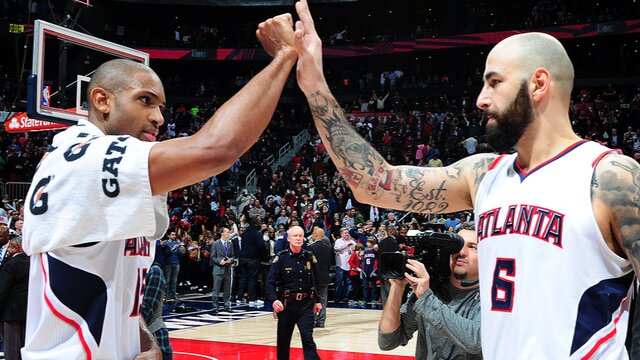
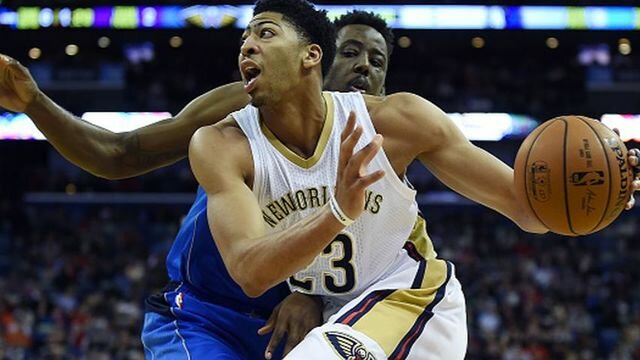
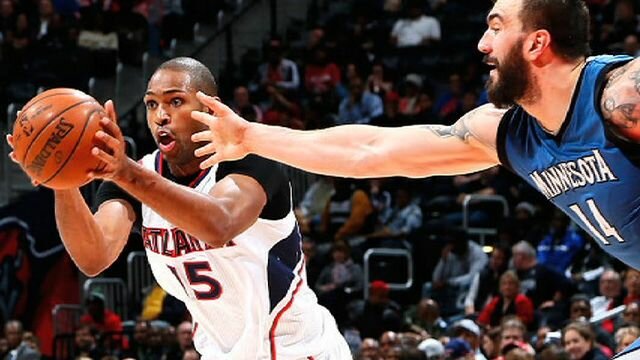


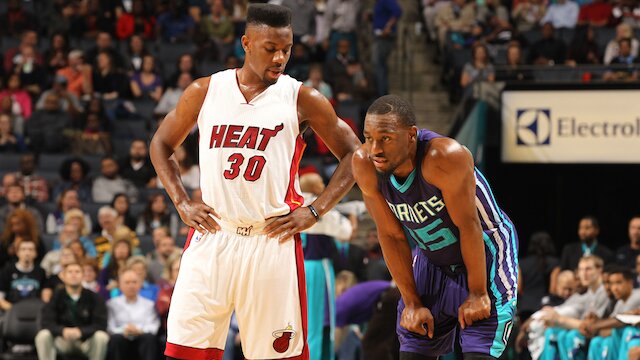
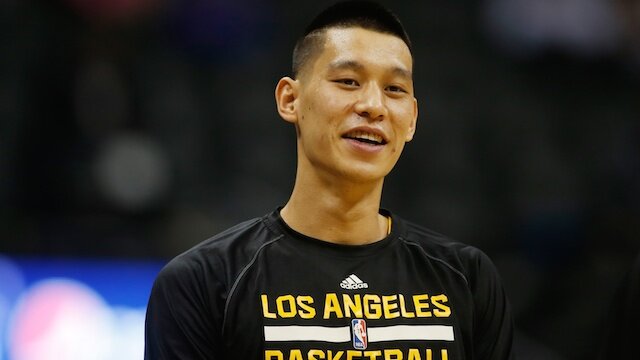
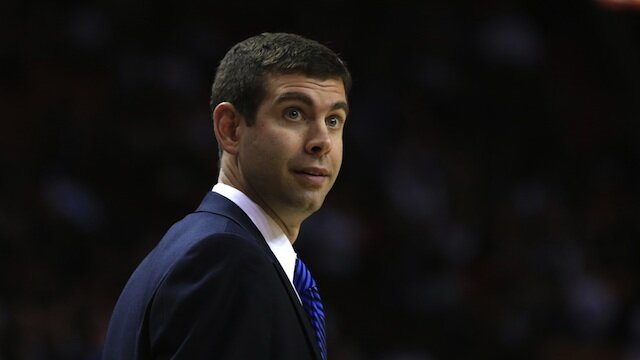
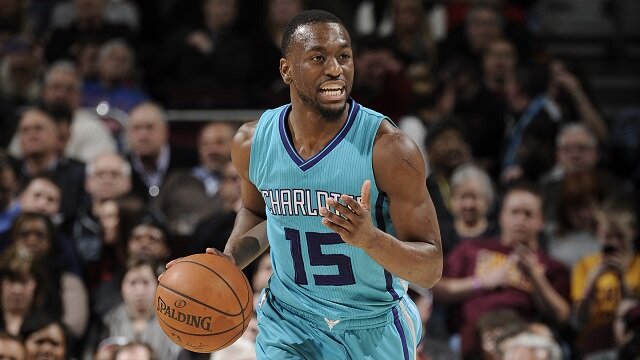
 @courtzierk
@courtzierk 